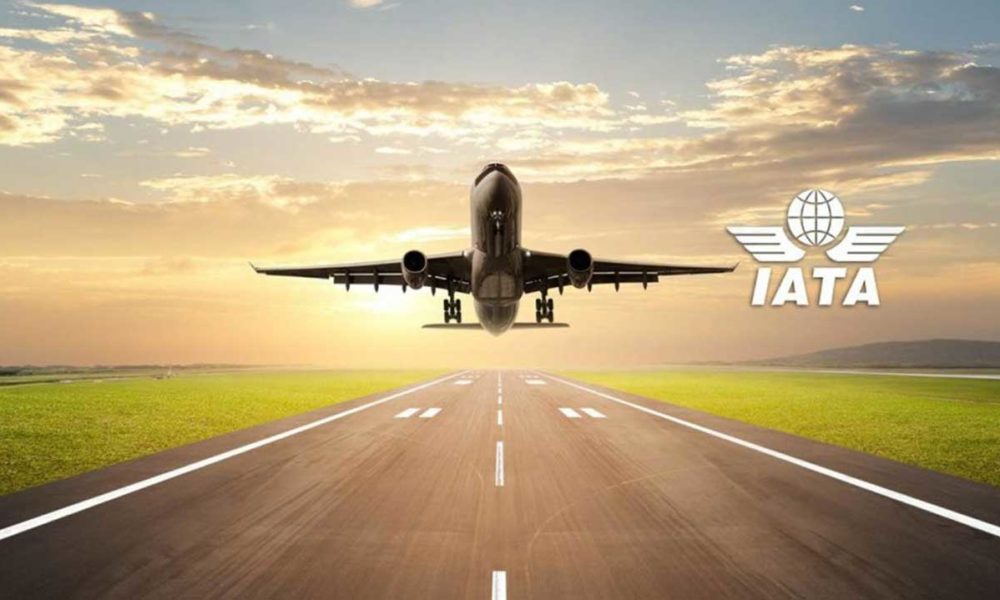Investment
IATA to Africa: Invest in Airport Infrastructure

- IATA to Africa: Invest in Airport Infrastructure
The International Air Transport Association (IATA) has advised African governments to invest in airport infrastructure.
Such investment, IATA said, would ensure improvement in air safety.
Besides, focusing on airport infrastructure, the global airlines regulator also urged African governments to consider committing more resources to training of technical aviation personnel to boost the quality of industry expertise and education.
IATA said investment in human capital development was neccessary for the growth and development of air transportation in Africa.
Its Regional Vice President, Africa and Middle East, Muhammad Ali Albakri, made this known in an interview with The Nation at the weekend in Lagos.
He said air transport could grow in Africa, if governments plough revenues accruing from taxes and levies into expanding operational facilities to enable airline operate safely and profitably.
Albakri said the global body will continue to engageAfrican governments on ways to improve civil aviation regulation,promote safety and security as well as design measures that will stimulate the growth of air transportation.
The global airlines regulator, however, canvassed the sharing of security information among African countries to facilitate the movement of cargo and people across transnational borders.
He said connectivity within African countries still remains a major hurdle for many countries because of failure of African governments to liberalise their airspace.
Liberalising the African airspace, Albakri said, will make it easy for more carriers to fly into major capitals without bilateral restrictions.
Regrettably, Albakri said the Single African Sky Agreement reached by many countries many years was yet to take off, because some of them were yet to realise the benefits a liberalised airspace could bring to their economies.
He said though Nigeria has taken some steps to fix its aviator sector, a lot still needs to be done.
Albakri said: “Air transport in Nigeria supports more than 650,800 jobs, including tourism-related employment, and contributing $8.2 billion to the country‘s Gross Domestic Product (GDP).
“ Over the next 10 years, passenger volumes are forecast to grow more than seven per cent yearly, exceeding the global average by a healthy margin.
“For Nigeria, this means an additional 7.9 million passengers that will take to the sky every year, creating significant opportunity to accelerate economic growth, boost prosperity and support development.”
He said despite significant investment in Nigeria’s aviation sector, the country’s air transport infrastructure still ranks low among African states.
Albakri said though IATA recognises and supports the positive developments by Nigeria on infrastructure, it seeks continued adherence to international best practices and an optimal regulatory environment.
He said: “Now that the country is emerging from recession, aviation can unlock the enormous economic potential that exists within Nigeria. We encourage the government to continue to promote aviation for its role as a catalyst and economic enabler for the country, and to promote stronger connectivity within Nigeria and its neighbouring African countries.
“In addition, now is the time to continue to invest in modern and efficient infrastructure to accommodate the future traffic growth that will occur,” he said.
Albakri said unwarranted or excessive taxation on international air transport will continue to have negative impact on economic and social development.
This, he said, pushed IATA to join forces with industry partners in ensuring that airlines are subjected to fair and efficient taxation measures with respect to their operations, regardless of location.
He said: “IATA will continue to work with the industry to ensure that government authorities adhere to the International Civil Aviation Organisation (ICAO), the Organisation for Economic Cooperation and Development (OECD), and the United Nations taxation principles. In this regard, IATA is actively involved in a range of activities.
“We will ensure that new and existing taxation measures, be they direct or indirect, are fairly applied and adequately consider the economic and social ramifications.
“We will continue to push against measures that result in double taxation, mobilise against taxation measures that unjustly target the industry, where the resulting tax revenues are not reinvested in air transport related services and infrastructure. He also said IATA will continue to play leadership role in influencing airport and airspace planning and development projects worldwide to meet airline requirements for safety, efficiency and functionality.
The IATA chief, however, spared a thought for the multiple entry policy obtainable for African carriers into Nigeria, urging other African carriers to open their skies for accelerated development of the continent.
Albakri said: “We encourage other countries to embrace what Nigeria has done by removing all restrictions that serve as obstacle to opening Africa with the least requirements.
“What we need in Africa is air services to connect the entire continent so that there could be exchange of expertise, knowledge and commerce.”
He said air safety in Africa has improved tremendously with more carriers embracing the International Operations Safety Audit ( IOSA).
Albakri said: “Safety has improved for African carriers due to hard work and focus on international standards, practices and procedures.
“We will continue to urge African countries to focus on airport and airspace management infrastructure improve training documentation, engage in regulatory information sharing to drive safety culture.”